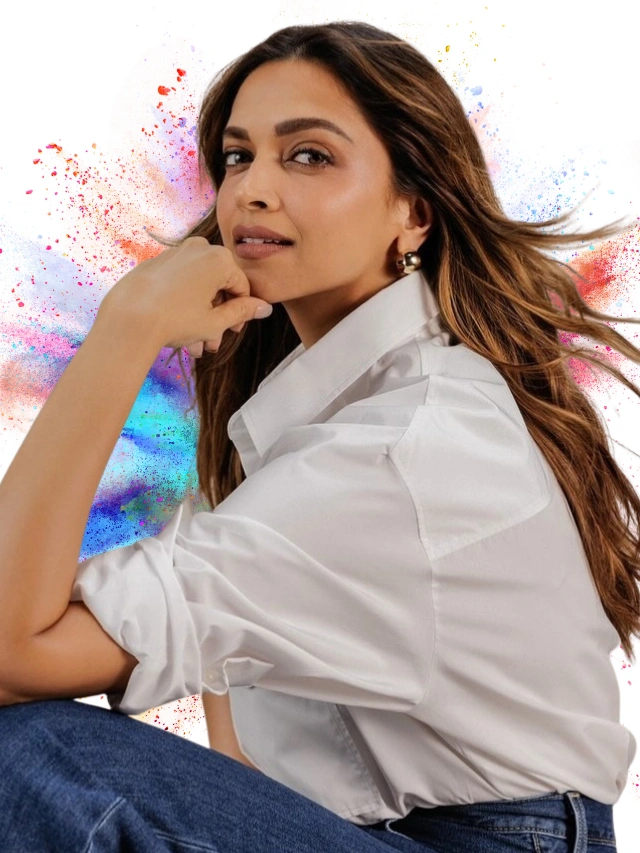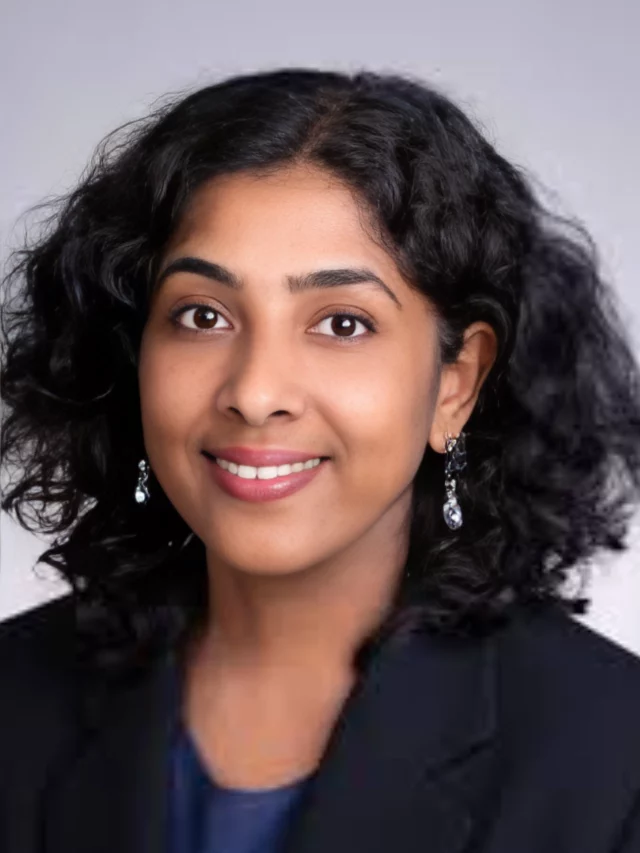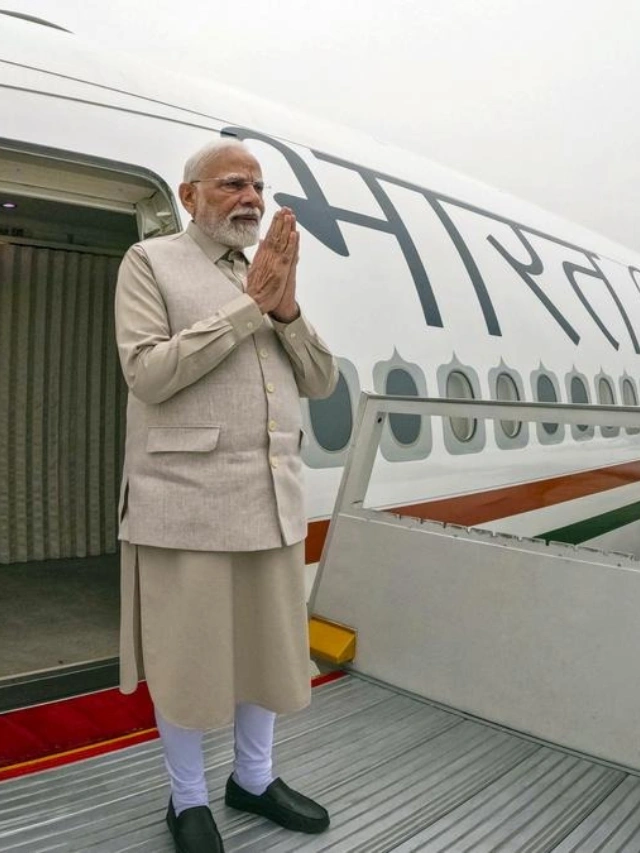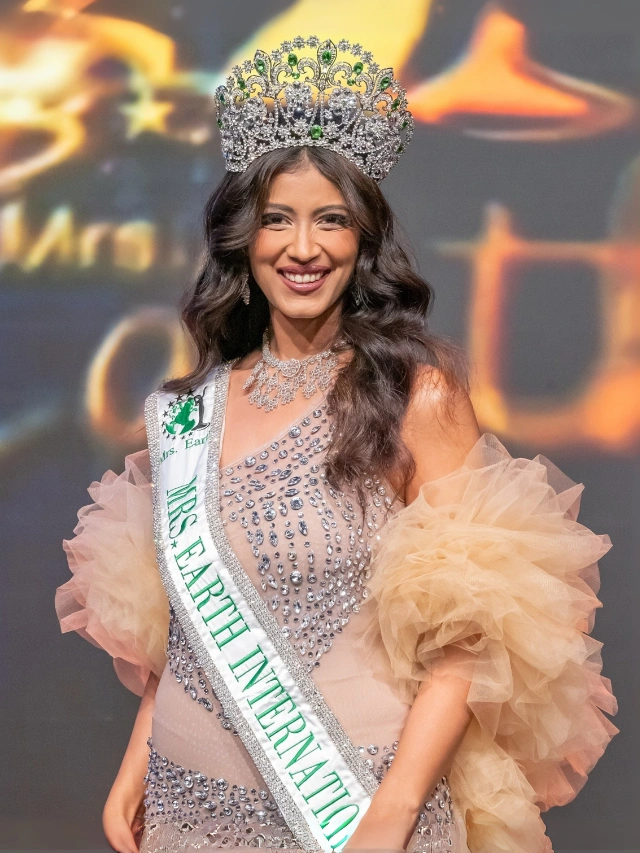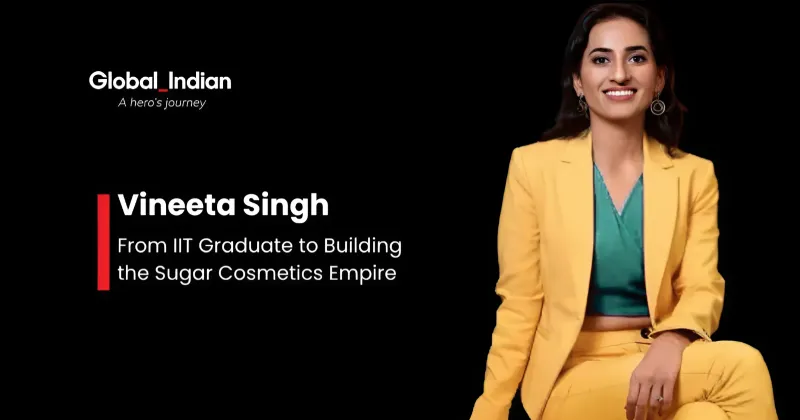
Vineeta Singh
Vineeta Singh made a bold choice at 23. The IIT Madras and IIM Ahmedabad graduate turned down a ₹1 crore job at Deutsche Bank to chase her entrepreneurial dreams. She faced setbacks with two failed ventures but ended up building Sugar Cosmetics, a beauty empire now worth around ₹3,000 crore.
CEO’s | Actors | Politicians | Sports Stars
Her success extends beyond business. Vineeta has completed 20 marathons and ultramarathons, showing incredible discipline. Sugar Cosmetics has grown rapidly with ₹105 crore in revenue for FY20 and now operates in more than 2,500 outlets across 130 cities.
The company’s focus on creating products for a variety of Indian skin tones has strongly appealed to consumers. Her story shows how persistence can turn rejection into a great chance for success.
“Don’t wait for the perfect moment. Take the moment and make it perfect.”
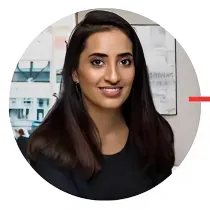
Early Life and Education
Family background and upbringing
Born in academic excellence, Vineeta Singh came into the world in 1983 in Anand, Gujarat. Her family’s intellectual credentials are impressive. Her father, Tej P. Singh, works as a biophysicist at the prestigious All India Institute of Medical Sciences (AIIMS), and her mother has earned a PhD. Vineeta spent her early years with her grandmother in Bhavnagar until her family moved to Delhi after her father got a position at AIIMS.
A legacy of perseverance molded Vineeta’s perspective from childhood. Her father’s experience is truly inspiring—he lost both parents before he turned five, walked 6 kilometers barefoot to school each day, and studied while he managed farm work. Notwithstanding that, he managed to keep going through BSc, MSc, and PhD programs to become a renowned scientist who conducts groundbreaking cancer research. Being the only daughter in the family, Vineeta found it hard to make friends right after moving to Delhi but soon built her social circle, just like any child getting used to a new environment.
Vineeta Singh’s education experience: IIT Madras and IIM Ahmedabad
Academic brilliance marked Vineeta’s educational path from the start. She finished her schooling at Delhi Public School, R.K. Puram in 2001. Her exceptional aptitude for studies showed in her impressive IIT JEE rank of 378, which got her into IIT Madras that same year. She earned her Bachelor’s degree in Electrical Engineering from IIT in 2005.
Beyond academics, Vineeta found that there was a passion for sports during her IIT years. She stood out in badminton and won many tournaments. Her athletic skills earned her an impressive collection of medals at Inter-IIT Sports Meets between 2001 and 2005:
- 2 Gold medals
- 2 Silver medals
Continuing her educational excellence, Vineeta then joined the Indian Institute of Management, Ahmedabad, and got her MBA in 2007. She picked IIM Ahmedabad with purpose—it offered specialized programs in leadership and entrepreneurship that matched her goals. During her time at IIM, she managed to keep up with her athletic interests and completed the challenging Mumbai Marathon. She also met Kaushik Mukherjee at the time, who later became her husband and business partner.
Early signs of entrepreneurship
Entrepreneurial instincts showed up remarkably early in Vineeta’s life. At just 10 years old, while most kids were busy playing, she worked with a friend to create a small magazine. These young entrepreneurs sold their creation door-to-door for ₹3 per copy. Many potential customers thought the price was too high, but this experience taught Vineeta key business lessons about pricing strategies, sales techniques, and bouncing back from rejection—these were great ways to get insights that would later shape her future business ventures.
A clear vision drove Vineeta even as a teenager. At 17, while preparing for IIT, a professor asked about her life goals. Her direct answer—”I want to be rich”—led the professor to suggest entrepreneurship as a path. This was the first time she heard the term “entrepreneur,” but the concept ended up defining her career path.
IIM Ahmedabad turned out to be transformative for Vineeta’s entrepreneurial mindset. She later gave credit to the institution for giving her “the courage to start my own business”. The specialized focus on leadership and entrepreneurship she found there substantially shaped how she approached risk-taking and her drive to chase ambitious goals. “IIMA taught me the importance of taking risks and showed me how aiming high can significantly impact your entire career path,” she reflected.
Turning Down a ₹1 Crore Job Offer
The Deutsche Bank internship
Summer of opportunity changed Vineeta Singh’s life in 2006. She got a sought-after summer internship at Deutsche Bank as an MBA student at IIM Ahmedabad. She worked between their London and New York offices. She worked with top teams—the Emerging Markets Structuring Team in London and the Strategic Equity Transaction Group in New York. She reported directly to global heads at both locations. Her outstanding work during the internship led to something special: a pre-placement offer at the Associate level. She could join any of Deutsche Bank’s global offices.
Historic compensation package waited for Vineeta after graduation. Deutsche Bank’s offer wasn’t just big—it broke records. The ₹1 crore per annum package was the first of its kind for a fresh graduate from an Indian business school. “It was the first time in IIM Ahmedabad, there was one bank that actually stepped up and said, if we can give this to graduates from Harvard or Wharton, why are we not giving it to Indian B-school graduates?” Vineeta said later. This moment changed everything. It put Indian management education on the global map and IIM graduates stood equal to their peers from top global schools.
Unprecedented recognition came with this offer. An IIM official said, “This offer is at par with the offers made to graduates of top-level business schools like Harvard. This is an acceptance of IIM-A as top B-school of the world”. The offer caught media attention not just for its size but because Vineeta was only 23 and had never worked full-time. “It also made news because I was just 23 at that time. I’d never worked anywhere. It was the idea of a young person getting a big offer, and that too a girl,” she explained.
Why she chose entrepreneurship over a corporate job
Entrepreneurial ambition grew in Vineeta’s mind since her teenage years. “Since my youth, I held the ambition to become an entrepreneur, with the only question being when and how,” she said in an interview. The Deutsche Bank offer excited her at first, but something deeper pulled her another way. She felt happy about the prestigious position initially—”I am very happy, it is the first time freshers are being offered this profile,” she told CNN-IBN. After thinking it through, she made a bold choice to say no.
Group of dreamers came together during this time. Vineeta found others who shared her dreams. Six other IIM-A graduates also said no to similar big offers to start their own ventures. She teamed up with Devashis Chakrobarty and two other classmates who had also turned down impressive corporate roles. They wanted to build a lingerie business with production facilities and retail outlets across India’s four metropolitan cities. Their decision showed that “IIM-A grads would not just like to be top executives, but also become entrepreneurs”.
Purpose beyond profit drove Vineeta’s choice. She didn’t just want independence when she said no to financial security—she had a bigger mission. “Her goal? To build something meaningful that enabled women and challenged the status quo”. This match between personal values and business goals became central to her path as an entrepreneur. Years later, it showed in her successful cosmetics brand.
Initial reactions and challenges
Financial reality check came after she said no to the offer. The difference between what could have been and her new life hit hard. “The first salary she made from her own services company was just Rs 10,000″—tiny compared to the ₹1 crore yearly package she had passed up. She lived in a basic one-room Mumbai apartment with a leaking ceiling and paid ₹5,000 monthly rent. This showed her the real cost of choosing entrepreneurship.
Investor skepticism created big problems. “In the initial stages of my entrepreneurial journey, securing venture capital, particularly for female founders, proved challenging”. She got her first funding—an angel round—only in 2013, years after starting her business journey. Gender bias made things worse. She told Business Today that “funding was once only granted under the condition that her husband joined the company full-time, which she viewed as gender discrimination”.
Persistent doubts came up during her early struggles. When asked if she regretted turning down the ₹1 crore offer, Vineeta honestly said, “Of course, many times”. The lingerie business she planned with her fellow graduates “did not take off as they could not raise the required funding”. Her youth worked against her—”investors did not support her idea, as they found her too young and inexperienced to stand out in such a competitive market”. She ran the business on bootstrap funding for five years but couldn’t keep it going without enough capital. These setbacks taught her valuable lessons that helped her succeed later with Sugar Cosmetics.
The Road to Sugar Cosmetics
First startup: Quetzal and its failure
Vineeta Singh’s early business days took shape after she boldly turned down the Deutsche Bank offer. She started her first venture, Quetzal, in 2007. The company helped recruiters with background verification checks. “It was a good idea—background checks for recruiters—but the market wasn’t quite ready,” Vineeta later reflected. The startup became what she openly called a “spectacular failure.” We mainly struggled because the business became commoditized and competitors kept undercutting prices.
Money problems marked this phase of Vineeta’s experience. She ran the business for five years and earned just ₹10,000 monthly. The amount seemed tiny compared to the ₹1 crore yearly package she had passed up. Her savings disappeared faster. Gender bias made things worse—she remembered an investor who refused to meet her because he “was expecting to meet a male entrepreneur”.
Vineeta ended up seeing this setback as a learning opportunity. Quetzal’s revenue grew to ₹4-5 crore, but she knew it wouldn’t scale and decided to close it down. This experience strengthened her resolve to build her own business, especially one that would help women consumers.
Second venture: Fab Bag and market insights
Vineeta’s next chapter focused on beauty subscriptions. She and her husband Kaushik Mukherjee created Fab Bag in 2012. The monthly beauty box service delivered hand-picked cosmetics to customers. Industry watchers noted that “The FAB BAG concept gave the team valuable insights, creating an environment to learn about their target market”. Subscribers could try beauty products before buying full-size versions.
Fab Bag’s operations turned into a research goldmine. The service built a community of about 200,000 Indian women over nine years. These customers shared their beauty priorities and feedback. This direct input helped Vineeta find a big gap in the market. Most makeup brands, whether from abroad or India, didn’t work well for Indian skin tones or match Indian women’s practical needs. Women needed products that wouldn’t melt in heat, humidity, and long commutes.
Fab Bag’s business lessons were a great way to get insights:
- Indian women wanted products made for their diverse skin tones
- Regular cosmetics melted under India’s hot sun
- Global brands ignored Indian climate conditions
- Women wanted high-quality affordable options
Founding Sugar Cosmetics with Kaushik Mukherjee
Vineeta wanted to shake up the market when she launched Sugar Cosmetics in 2015 with Kaushik Mukherjee. Industry analysts reported, “Armed with knowledge from serving over two lakh women, she started a mission to create makeup made in India for Indians”. They had a clear vision: make quality makeup that suited Indian women with bright, high-quality cosmetics at reasonable prices.
The young company almost died several times. Vineeta later shared, “When we decided to pivot from FAB Bag to SUGAR, we literally had the last INR 25-30 Lakh in our bank account, which we had to keep aside because we had to refund the subscriptions of consumers we’ve taken money from”. Nobody had built a successful consumer brand from India at that time, making their path uncertain.
Their determination led to amazing growth. Sugar Cosmetics earned ₹52 lakhs in its first year. Sales jumped to ₹11 crore by 2017 and shot up to ₹105 crore by 2020. The company’s value reached about ₹4,000 crore in May 2022. The brand grew faster from a struggling startup to a beauty empire. Through everything, they stuck to their core mission: making makeup that matched Indian women’s priorities and celebrated their beauty in all its diversity.
Scaling Sugar Cosmetics into a Beauty Empire
Product innovation and market fit
Strategic product development is a vital part of Sugar Cosmetics’ rapid growth. The brand designed products specifically for Indian skin tones, climate, and priorities when they learned about the need for high-quality yet affordable makeup. Their lipsticks, priced between ₹599-₹699, helped them find their perfect market spot. The lips category became their bestseller and generated about 65% of revenue.
Market insights shaped Sugar’s product development journey. Customer feedback led to innovative products like matte eyeliners and foundation sticks with inbuilt brushes. The brand’s move toward sustainable and cruelty-free formulations struck a chord with eco-conscious consumers.
Funding rounds and investor interest
Capital infusion stimulated Sugar’s expansion. The company secured ₹4,219.02 million in Series D funding led by L Catterton in May 2022. A91 Partners, Elevation Capital, and India Quotient – their existing investors – joined this round. Multiple funding rounds by 2023 positioned the company for sustainable growth.
Strategic investors elevated the company’s profile. Bollywood actor Ranveer Singh bought a minority stake in September 2022, which brought star power and business expertise together. This funding helped Sugar scale operations while focusing on profitability.
Celebrity partnerships and brand visibility
Star-powered collaborations boosted brand reach. Vellvette Lifestyle (Sugar’s parent company) worked with actor Kareena Kapoor Khan in 2023 to create a joint venture for its skincare brand Quench Botanics. Khan became a strategic investor and co-owner, using her social media influence to grow this Korean beauty-inspired brand.
Marketing momentum grew through influencer partnerships. Sugar’s extensive cooperation with beauty bloggers created authentic product reviews and tutorials that built brand awareness and consumer trust.
Omnichannel strategy and global expansion
Strategic distribution channels reshaped Sugar’s market presence. Sugar started as a D2C online beauty brand in 2015 and adopted an omnichannel approach in 2017. The company spread to over 2,500 retail outlets within two years.
Retail expansion thrived even during tough times. Sugar strengthened its retail footprint while competitors reduced operations during the pandemic. The brand now operates in more than 45,000 retail points across 550 cities. Sugar’s business outside Tier I cities accounts for 60% of total sales.
Global ambitions support domestic success. International sales make up about 10% of business, though India remains Sugar’s main market. Vineeta Singh wants to enter more overseas markets to establish Sugar as an internationally recognized beauty brand.
Public Image and Personal Life
From Rejection to Empire
Determination and vision turned Vineeta Singh’s early setbacks into remarkable success. She said no to a ₹1 crore job offer from Deutsche Bank. After two failed ventures, she started Sugar Cosmetics. Her story shows how rejection can become a stepping stone, not a roadblock. She had doubts during tough times, but her persistence through business challenges helped build a beauty empire now worth about ₹4,000 crore. Her risky decision became her most rewarding choice.
Market Understanding as Competitive Advantage
Customer-centric state-of-the-art products are the life-blood of Sugar Cosmetics’ amazing growth. The brand’s deep understanding of Indian women’s needs created a unique market position. Sugar filled a huge gap in the beauty industry by making products for Indian skin tones and climate conditions. Their lipsticks and foundation lines struck a chord with customers who couldn’t find the right products before. This perfect market fit and affordable pricing made Sugar a homegrown brand that connected with its audience.
Strategic Business Acumen
Calculated expansion marked Sugar’s rise from a small startup to a beauty powerhouse. The company started online and later added physical stores, which changed everything. Sugar took a bold step to grow its retail presence when competitors pulled back during the pandemic. The brand now sells through 45,000 retail points in 550 cities. About 60% of business comes from beyond Tier I cities. Strategic funding and partnerships with stars like Ranveer Singh and Kareena Kapoor Khan boosted the brand’s visibility.
Leadership Lessons
Personal discipline defines Vineeta Singh’s entrepreneurial story. She finished 20 marathons and ultramarathons with the same drive that kept her business going. Investors doubted her, and she faced gender bias. Yet she kept improving her business model until she succeeded. Her education from IIT Madras and IIM Ahmedabad gave her strong business skills. Vineeta’s story teaches us about staying strong, knowing your market, and believing in your vision despite challenges.
Future Horizons
Continued growth lies ahead for Sugar Cosmetics under Vineeta’s leadership. India remains the main market, but international sales make up 10% of business already. The company plans to grow globally while staying true to its core belief of creating products that celebrate diversity. Vineeta Singh turned from a graduate who passed up corporate security into a successful entrepreneur. Her story shows how passion, persistence, and purpose create extraordinary business success. She inspires new entrepreneurs, especially women, to chase their dreams whatever the obstacles.
Also Read: Journey of Indra Nooyi

